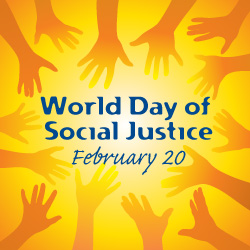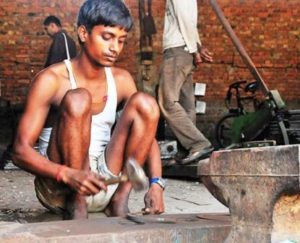Recent events flashing across the world’s television screens have brought into sharp focus demands that have been brewing in the hearts of people: the desire for a decent life and a decent future based on social justice.
The fault lines of the global economy, apparent for a long time, are cracking open to reveal uncertainty and vulnerability, sentiments of exclusion and oppression and a lack of opportunities and jobs, made more painful by the global economic crisis.
Women and men without jobs or livelihoods really don’t care if their economies grow at 3, 5 or 10 percent per year if such growth leaves them behind and without protection. They do care whether their leaders and their societies promote policies to provide jobs and justice, bread and dignity, freedom to voice their needs, their hopes and their dreams and the space to forge practical solutions where they are not always squeezed.
The reality is that people commonly judge whether society, the economy and the polity are working for them through the prism of work. Whether they have a job, or not, the quality of life it permits, what happens when they have no work or cannot work. In so many ways the quality of work defines the quality of society.
Yet the world of work is in tatters today: more than 200 million people are unemployed worldwide, including nearly 80 million youth, both figures are at or near their highest points ever. What is more, the number of workers in vulnerable employment – 1.5 billion – and the 630 million working poor living with their families at US$ 1.25 a day or less is increasing.
At the same time, global inequalities are growing. The crisis has cut wage growth in half, reduced social mobility through work and trapped more and more people in low-paid jobs. Income gaps are growing in some countries. Youth face the increasing likelihood of never finding a decent job – the prospect of a lost generation looms. And the middle class often finds itself in the middle of nothing and going into reverse.
Achieving a fair globalization calls for a new vision of society and economy, with a balanced approach to the role of state, markets and society and a clear understanding of the possibilities and limitations of individual action in that framework. Action must go beyond simply recovering growth – we will not get out of the crisis with the same policies that led to it.
We need to move toward a new era of social justice.
In 2007, the then Director-General of the International Labour Organisation Juan Somavia wrote this, has anything changed ten years later?


